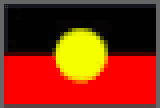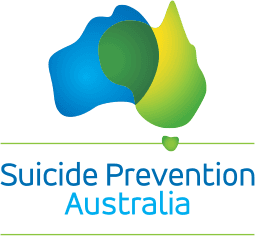Generalized Anxiety Disorder 7 Item Scale GAD-7
Generalized Anxiety Disorder 7 Item Scale GAD-7 overview
Creator and Context
The Generalized Anxiety Disorder 7 Item Scale (GAD-7) is a concise self-report tool primarily used for screening and measuring the severity of generalized anxiety disorder (GAD). Comprising 7 items, it assesses the frequency of symptoms associated with GAD such as worry, nervousness, and irritability over the last two weeks.
The GAD-7 was developed by Robert L. Spitzer, Janet B.W. Williams, Kurt Kroenke, and colleagues. It was specifically designed to facilitate the recognition and diagnosis of GAD in primary care settings, but has since been widely adopted in various clinical and research environments.
Presenting Conditions
The GAD-7 is effective in identifying symptoms consistent with generalized anxiety disorder, including:
Excessive worry and anxiety.
Difficulty in controlling worry.
Restlessness or feeling on edge.
Irritability and muscle tension.
Administration
The GAD-7 is self-administered, with respondents rating the frequency of each symptom they have experienced over the past two weeks on a 4-point scale (from 'not at all' to 'nearly every day').
Desired Audience
This scale is suitable for use with adults and can be particularly valuable in primary care, mental health settings, and for research purposes.
The GAD-7 is primarily used for screening purposes, to identify those who may have generalized anxiety disorder, and to monitor symptom severity over time. It can also be used to gauge treatment response.
Considerations
The GAD-7 is a screening tool, not a diagnostic tool.
Scores should be interpreted in the context of the individual's overall clinical picture.
Cultural and linguistic factors may influence responses.
How to score the Generalized Anxiety Disorder 7 Item Scale GAD-7
Conducting the assessment
Respondents indicate how often they have been bothered by each of the 7 anxiety-related symptoms over the last two weeks, using a four-point scale.
Interpretation
Each item is scored from 0 to 3, with the total score ranging from 0 to 21.
Scores of 0-4 indicate minimal anxiety.
Scores of 5-9 suggest mild anxiety.
Scores of 10-14 indicate moderate anxiety.
Scores of 15-21 suggest severe anxiety.
Clinical Considerations
Use GAD-7 scores as a preliminary assessment of anxiety severity.
Consider a comprehensive evaluation for individuals with moderate to severe scores.
Regular administration can monitor changes in anxiety levels over time.
Generalized Anxiety Disorder 7 Item Scale GAD-7 use cases
Screening for generalized anxiety disorder in primary care.
Monitoring treatment progress in therapy or clinical trials.
Research into the prevalence and severity of anxiety symptoms.
Category
Anxiety
Research Summary
Spitzer, R. L., Kroenke, K., Williams, J. B., & Löwe, B. (2006). A brief measure for assessing generalized anxiety disorder: The GAD-7. Archives of Internal Medicine, 166(10), 1092-1097.
Löwe, B., Decker, O., Müller, S., et al. (2008). Validation and standardization of the Generalized Anxiety Disorder Screener (GAD-7) in the general population. Medical Care, 46(3), 266-274.
Other Assessment Guides
Clinical Outcomes in Routine Evaluation 10 CORE-10
Explore the Clinical Outcomes in Routine Evaluation 10 (CORE-10), an efficient tool for assessing and monitoring psychological distress. Ideal for clinicians and researchers, this guide covers its use in screening, tracking treatment progress, and evaluating therapy effectiveness.
Depression Anxiety Stress Scales DASS-21
Explore the Depression Anxiety Stress Scales (DASS-21) in our comprehensive guide. Learn about its creation, use in assessing emotional states, practical application, scoring, and clinical guidance. Ideal for professionals seeking a detailed understanding of DASS-21's role in mental health assessment
Kessler Psychological Distress Scale K-10
Delve into our detailed guide on the Kessler Psychological Distress Scale (K-10), a crucial tool for assessing anxiety and depression symptoms. Learn about its creation, use, scoring, and interpretation, tailored for mental health professionals and researchers seeking effective distress screening methods.










